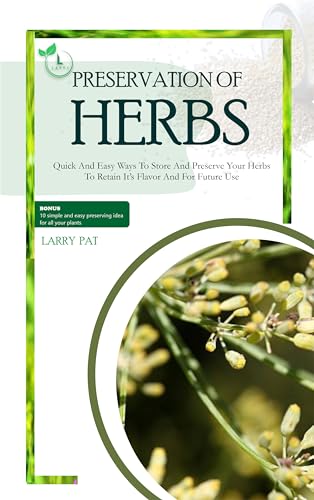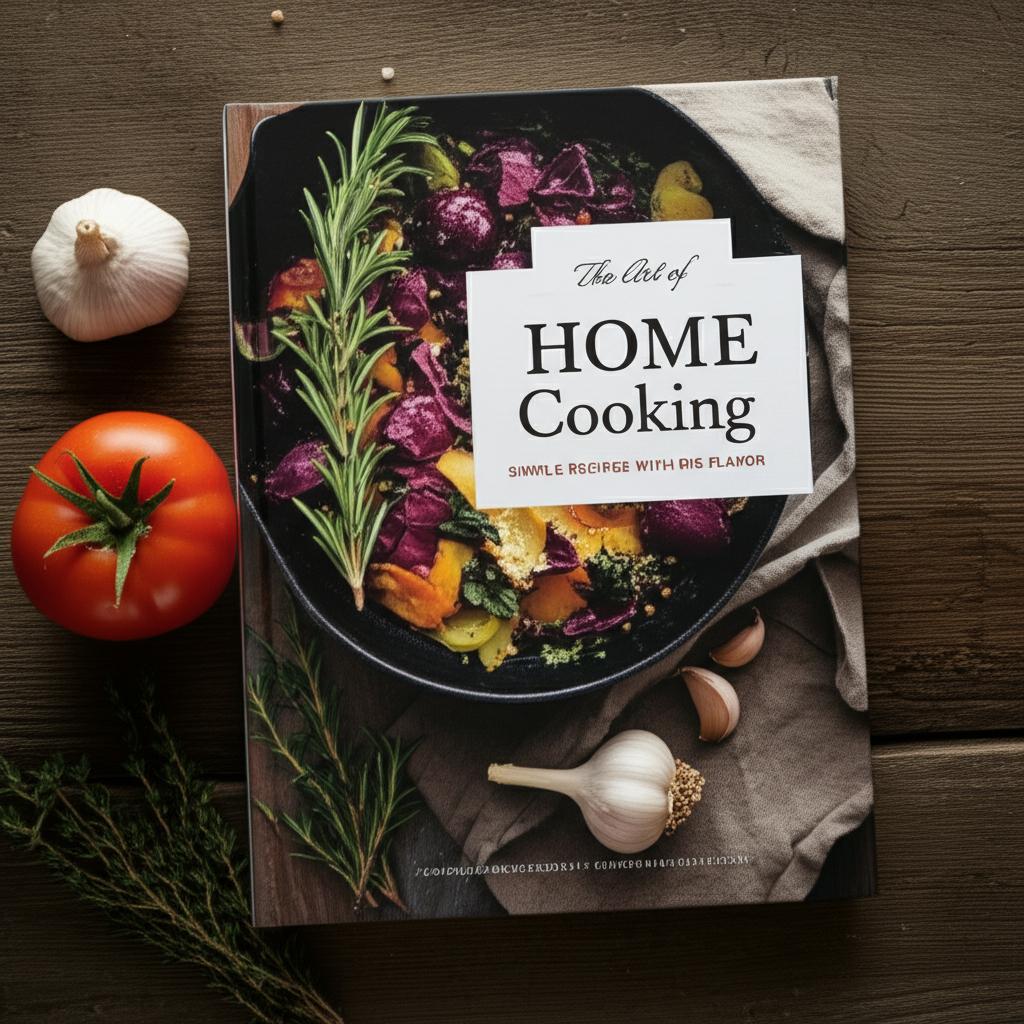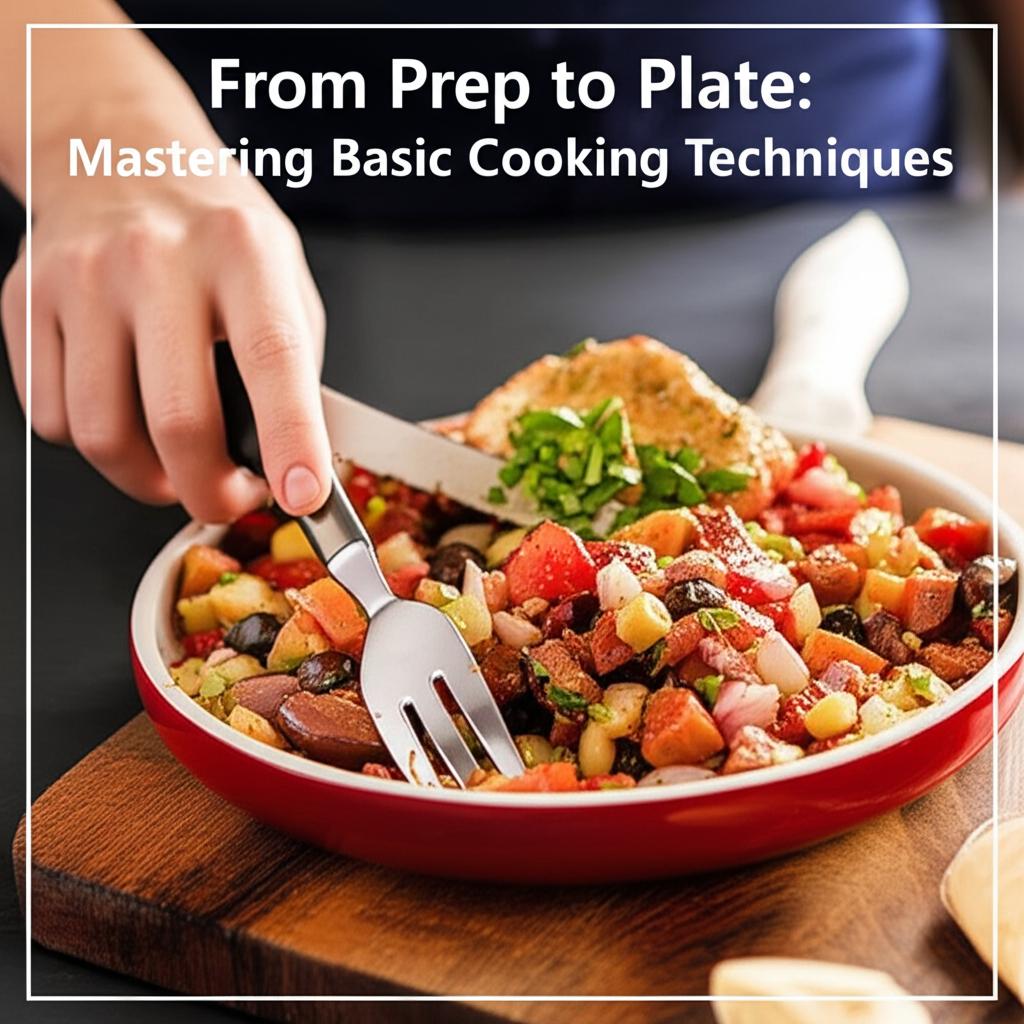Do you ever buy a beautiful bunch of fresh herbs, only to find them sad and wilted in your fridge just a few days later? It’s a common kitchen woe! Those fragrant green leaves are a game-changer for any dish, but their short shelf life can be super frustrating. No one wants to waste money or lose out on that burst of fresh flavor.
The good news is, learning how to store fresh herbs for longer isn’t rocket science, but it does require a few smart tricks and sometimes, the right tools. Proper herb preservation techniques can extend the life of your cilantro, parsley, basil, and more, keeping them vibrant and ready for action whenever you need them. Not only does this save you trips to the grocery store, but it also reduces food waste and ensures your meals are always packed with the freshest flavors.
In this article, we’re diving deep into the world of herb longevity. We’ll explore simple tips and review some fantastic products and resources designed to help you master the art of keeping herbs fresh. Let’s get those herbs happy!
Why Proper Herb Storage is a Game-Changer
Before we jump into the “how-to,” let’s quickly touch on why this matters. Fresh herbs aren’t just a garnish; they add depth, aroma, and a healthy dose of nutrients to your cooking. When they wilt, they lose their potency and appeal. By extending their shelf life, you:
- Save Money: No more throwing away unused herbs.
- Reduce Waste: Good for your wallet, good for the planet.
- Enhance Flavor: Fresh herbs mean maximum flavor in your dishes.
- Convenience: Always have fresh herbs on hand when inspiration strikes.
General Tips to Keep Herbs Fresher, Longer
Even before considering specialized products, a few basic methods can make a big difference in how to store fresh herbs for longer:
- Treat Them Like Flowers: For delicate herbs like parsley, cilantro, and basil, trim the ends and place them upright in a glass of water, much like a bouquet. Cover loosely with a plastic bag and refrigerate (except basil, which prefers room temperature).
- The Damp Paper Towel Roll: For heartier herbs like rosemary, thyme, or oregano, gently wrap them in a slightly damp paper towel, then place the bundle in a resealable plastic bag or airtight container before refrigerating.
- Freezing for Later: For long-term storage, you can chop herbs finely and freeze them in olive oil in ice cube trays. Once frozen, transfer the cubes to a freezer-safe bag. Perfect for soups and stews!
- Drying: While it changes the flavor profile, drying herbs is another classic method for preservation.
These methods are great, but sometimes a dedicated solution can make the process even easier and more effective. Let’s look at some products and resources that can truly elevate your herb game!
Top 7 Solutions for Storing Fresh Herbs
Here are some excellent products and resources to help you master how to store fresh herbs for longer:
1. LAWNFUL 2 Pack Fresh Herb Keeper for Refrigerator, Clear

If you’re tired of limp cilantro and sad parsley, the LAWNFUL Fresh Herb Keeper could be your new best friend. This thoughtful design focuses on keeping your herbs vibrant for significantly longer by providing an ideal environment within your refrigerator. Its clear construction lets you easily see your herbs, so you’ll know exactly what you have on hand and when it’s time to use them. Plus, it’s compact enough to fit neatly in your fridge door!
- Key Features:
- Designed to prolong herb life by up to 3 times.
- Fully transparent for easy visibility of freshness.
- Removable divider for storing a variety of herbs in one container.
- Inner basket with two handles for convenient lifting.
- Made from BPA-free and food-grade plastic.
- Compact size fits easily in typical refrigerator doors.
- Available in a variety of bright colors to complement your kitchen.
- Pros:
- Significantly extends the freshness of delicate herbs.
- Clear design helps monitor herb health.
- Divider allows for organized storage of multiple herb types.
- Easy to use and clean.
- Safe, durable, and food-grade materials.
- Space-saving design is fridge-friendly.
- Cons:
- Best for upright herbs; less ideal for very short or flat herbs.
- Requires some water maintenance.
- User Impressions: Users frequently praise its effectiveness in keeping herbs fresh for weeks, often noting how much money they’ve saved by not throwing out wilted greens. The convenient size and clear visibility are also commonly highlighted as major pluses.
- See it on Amazon here
2. The Year-Round Vegetable Gardener: How to Grow Your Own…

While not a physical storage product, “The Year-Round Vegetable Gardener” is an invaluable resource for anyone passionate about fresh produce, including herbs. If you want to ensure the freshest possible herbs, growing them yourself is the ultimate solution. This book provides the knowledge to cultivate your own supply, meaning you’ll have peak-freshness herbs right outside your door, ready for harvest whenever you need them. Understanding how to grow them can also inform how you handle and preserve them post-harvest for optimal flavor and longevity.
- Key Features:
- Comprehensive guide to cultivating vegetables and herbs year-round.
- Covers planting schedules, care, and harvesting techniques.
- Focuses on sustainable and continuous fresh produce.
- Pros:
- Empowers you to grow your own freshest herbs.
- Teaches fundamental gardening skills for sustainability.
- Offers insights into the life cycle and optimal harvesting of plants.
- Reduces reliance on store-bought herbs.
- Cons:
- Not a direct herb storage solution; requires gardening effort.
- Learning curve for beginners.
- User Impressions: Gardeners rave about this book for its practical advice and clear instructions, making year-round growing accessible even in challenging climates. Many appreciate how it helps them achieve a continuous supply of fresh ingredients.
- See it on Amazon here
3. The Herbal Alchemist’s Handbook: A Complete Guide to…

“The Herbal Alchemist’s Handbook” isn’t about storing herbs in your fridge, but it offers a fascinating, in-depth look into the magical and medicinal properties of herbs. For those who want to truly understand the essence of their herbs beyond just culinary uses, this book is a treasure trove. Knowing the full spectrum of an herb’s properties can inspire a deeper appreciation and more intentional preservation, ensuring you maintain not just freshness but also potency for whatever purpose you use them.
- Key Features:
- Explores the magical, medicinal, and esoteric aspects of herbs.
- Offers a comprehensive guide to traditional herbal alchemy.
- Delves into the properties and preparations of various herbs.
- Pros:
- Provides a unique and profound understanding of herbs.
- Broadens perspective on herb usage beyond cooking.
- Inspires a holistic approach to herbs and their preservation.
- Cons:
- Not focused on practical, day-to-day kitchen herb storage.
- More academic or spiritual in nature.
- User Impressions: Readers find this book incredibly insightful and unique, appreciating its depth and the author’s extensive knowledge of herbal traditions. It’s often recommended for those looking for a non-traditional perspective on herbs.
- See it on Amazon here
4. Herb Keeper Set: 2 Pack Herb Saver+1 Pack Herb Scissors+2…

Why just store your herbs when you can also make prep a breeze? This comprehensive Herb Keeper Set not only provides two effective herb keepers to significantly extend the life of your fresh greens, but it also includes handy tools like multi-blade herb scissors and herb strippers. It’s an all-in-one solution designed to help you store, prep, and enjoy your herbs with minimal fuss, making it a fantastic value for any kitchen enthusiast.
- Key Features:
- Includes 2 Herb Keepers, 1 five-blade Herb Scissors, and 2 Herb Strippers.
- Keepers prolong herb life by up to 3 times, similar to the LAWNFUL model.
- Keepers are transparent, with removable dividers and inner baskets with handles.
- Keepers are made from BPA-free, food-grade plastic.
- Herb scissors are food-grade stainless steel with an ergonomic TPR handle.
- Herb strippers quickly remove leaves from stems and have a curved edge for cutting.
- Keepers have a compact size (4.6 x 5 x 9 inches) suitable for refrigerator doors.
- Pros:
- Complete bundle for herb storage and preparation.
- Effective at extending herb freshness for weeks.
- Scissors and strippers make herb prep incredibly fast and easy.
- Safe and durable materials for all components.
- Keepers are transparent and space-efficient.
- Cons:
- Might be more items than a minimalist kitchen needs.
- Herb scissors require careful cleaning between blades.
- User Impressions: Customers love the convenience of having both storage and cutting tools in one set. The herb keepers receive high marks for their effectiveness, and the scissors are often highlighted as a surprising favorite for speeding up meal prep.
- See it on Amazon here
5. The Encyclopedia of Crystals, Herbs, and New Age Elements:…

This encyclopedia offers a broad, holistic perspective on various natural elements, including herbs. While not a practical guide on how to store fresh herbs for longer in your kitchen, it serves as a wonderful reference for understanding the broader significance and properties of herbs. For those who see herbs as more than just ingredients, this book provides context, deepening your appreciation for their potential and encouraging mindful handling, which can indirectly contribute to better care and preservation.
- Key Features:
- Comprehensive encyclopedic resource covering crystals, herbs, and New Age concepts.
- Details properties, uses, and historical significance.
- Designed for broad reference and exploration of natural elements.
- Pros:
- Extensive and well-researched information across multiple topics.
- Broadens understanding and appreciation of herbs.
- Great for those interested in holistic health and natural practices.
- Cons:
- Does not provide direct, practical advice on herb storage.
- Focuses on a wide range of topics, not just herbs.
- User Impressions: Reviewers commend its comprehensiveness and the ease with which information can be found. It’s often described as a valuable desk reference for anyone exploring natural and spiritual concepts.
- See it on Amazon here
6. The New Age Herbalist: How to Use Herbs for Healing,…

“The New Age Herbalist” shifts the focus from culinary uses to the healing power of herbs. Understanding the medicinal properties and applications of different herbs can significantly influence how you approach their care and preservation. When you realize the potency and value of a fresh herb for wellness purposes, you’re naturally more inclined to ensure its freshness and integrity are maintained, guiding your choices in storage methods to preserve those vital healing qualities.
- Key Features:
- Guide to using herbs for healing and wellness.
- Explores medicinal properties, traditional remedies, and preparation methods.
- Focuses on holistic health approaches with herbs.
- Pros:
- Provides practical knowledge for herbal healing.
- Highlights the importance of herb potency for therapeutic use.
- Good for those interested in natural medicine and self-care.
- Cons:
- Primarily focused on medicinal uses, not culinary storage.
- Requires interest in herbal remedies.
- User Impressions: Readers appreciate the practical advice and clear explanations for using herbs for healing. Many find it an inspiring guide for incorporating natural remedies into their lives.
- See it on Amazon here
7. HERBS PRESERVATION FOR BEGINNERS: Quick and easy ways to…

This book is a direct and practical resource for anyone looking to master how to store fresh herbs for longer using various methods beyond just refrigeration. “Herbs Preservation for Beginners” is designed to demystify different preservation techniques, from drying and freezing to making infused oils and vinegars. If you’re keen to explore a range of simple, effective ways to extend the life of your herb harvest or grocery store bounty, this guide is an excellent starting point.
- Key Features:
- Offers quick and easy preservation methods for beginners.
- Covers various techniques like drying, freezing, infusing oils/vinegars, and more.
- Practical tips for maximizing herb shelf life.
- Pros:
- Directly addresses the challenge of herb preservation.
- Beginner-friendly and easy to understand.
- Provides a wide array of practical, actionable methods.
- Excellent for reducing food waste and ensuring year-round herb availability.
- Cons:
- It’s a book, so no physical storage product included.
- Requires the reader to implement the techniques themselves.
- User Impressions: Users frequently praise this book for its clear, concise instructions and variety of methods. It’s often cited as an incredibly helpful resource for anyone new to preserving herbs, making the process feel less daunting.
- See it on Amazon here
Conclusion
Keeping your fresh herbs vibrant and flavorful doesn’t have to be a battle. Whether you opt for a dedicated herb keeper like the LAWNFUL or Herb Keeper Set, dive into the art of growing your own with “The Year-Round Vegetable Gardener,” or explore the many preservation methods outlined in “Herbs Preservation for Beginners,” there are plenty of effective ways to extend the life of your greens. By investing in the right tools or knowledge, you’ll ensure your kitchen always has a fresh burst of flavor ready to elevate any dish, saving you money and reducing waste in the process. Happy cooking!
FAQ: How to Store Fresh Herbs for Longer
Q1: What’s the best way to store delicate herbs like cilantro and parsley?
A1: For delicate, leafy herbs such as cilantro, parsley, and dill, treat them like a bouquet of flowers. Trim the bottoms of the stems, place them in a glass with about an inch of water, and cover them loosely with a plastic bag. Store them in the refrigerator. Change the water every couple of days.
Q2: How should I store basil to keep it fresh?
A2: Basil is unique! It doesn’t like the cold, so avoid the refrigerator if possible. Instead, trim the stems, place the bunch in a glass of water on your counter away from direct sunlight, and cover loosely with a plastic bag. Change the water daily. It will stay fresh for about a week this way.
Q3: Can I freeze fresh herbs? If so, what’s the best method?
A3: Absolutely! Freezing is an excellent way to keep herbs for longer. For soft herbs (basil, cilantro, parsley), chop them finely and mix with olive oil. Spoon the mixture into ice cube trays and freeze. Once solid, transfer the cubes to a freezer-safe bag. For heartier herbs (rosemary, thyme), you can freeze them on the stem or chop and freeze in water.
Q4: How long do fresh herbs typically last with proper storage?
A4: With proper storage, delicate herbs in water in the fridge can last 1-2 weeks. Heartier herbs wrapped in a damp paper towel can last 2-3 weeks. Herb keepers often claim to extend freshness up to 3 times longer than traditional methods, potentially stretching it to 3-4 weeks. Frozen herbs can last for several months.
Q5: Are herb keeper containers worth it?
A5: Many users find herb keeper containers very worthwhile, especially if they frequently use a variety of fresh herbs. They create an optimal, humid environment that significantly extends freshness, often outperforming basic DIY methods. They’re also convenient and reduce clutter.
Q6: What’s the best way to dry fresh herbs at home?
A6: Air drying is simple for herbs like rosemary, thyme, and oregano. Tie small bundles of herbs together and hang them upside down in a warm, dry, well-ventilated area away from direct sunlight. Alternatively, you can use a dehydrator or even a low oven setting (around 100°F/40°C) with the door slightly ajar until brittle.
Q7: Can I revive wilted herbs?
A7: Sometimes! If herbs are just slightly wilted but not slimy or discolored, you might be able to revive them. Trim the ends and plunge them into a bowl of ice water for 30-60 minutes. This often helps them crisp up again, especially delicate leafy herbs.



